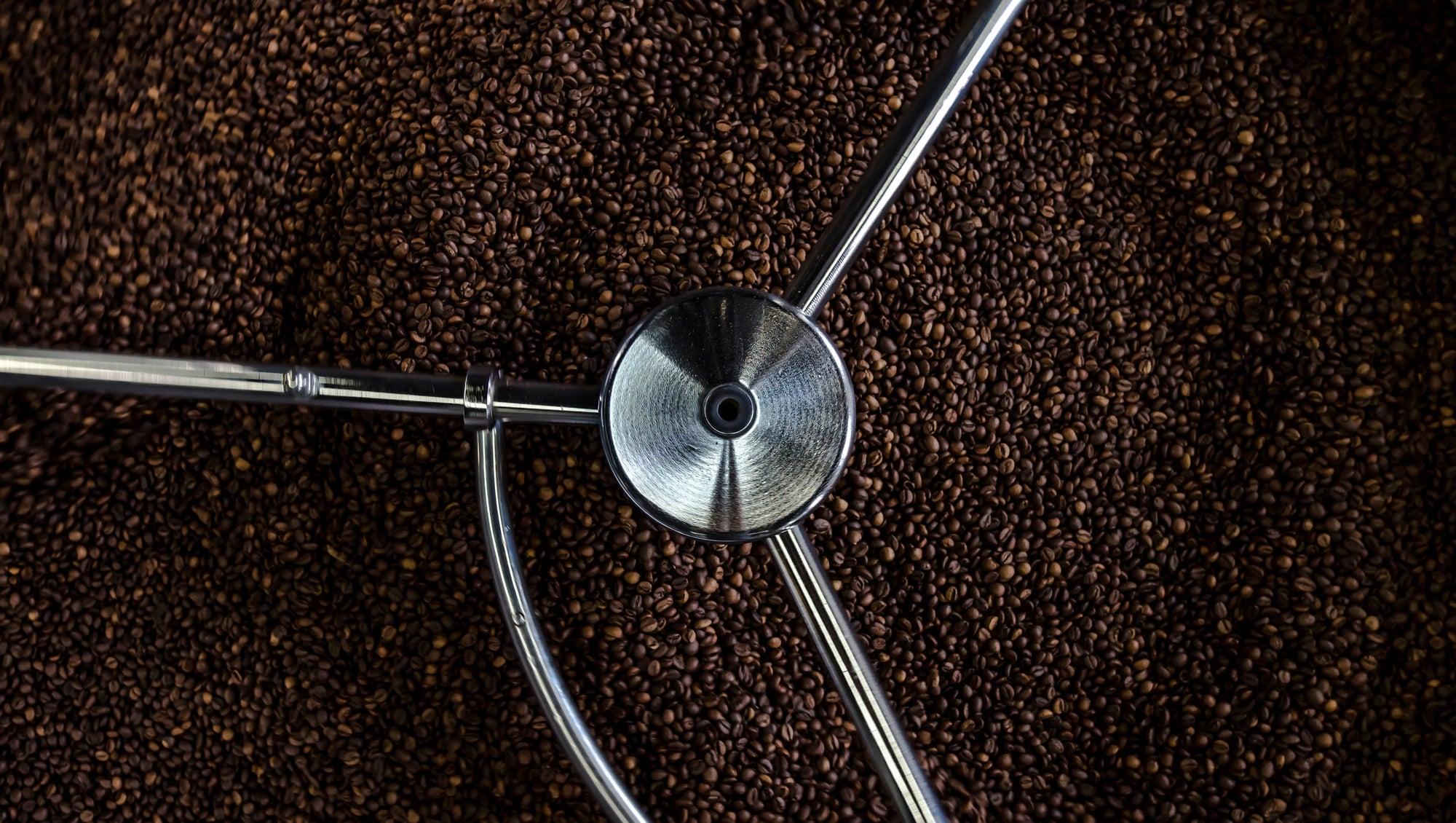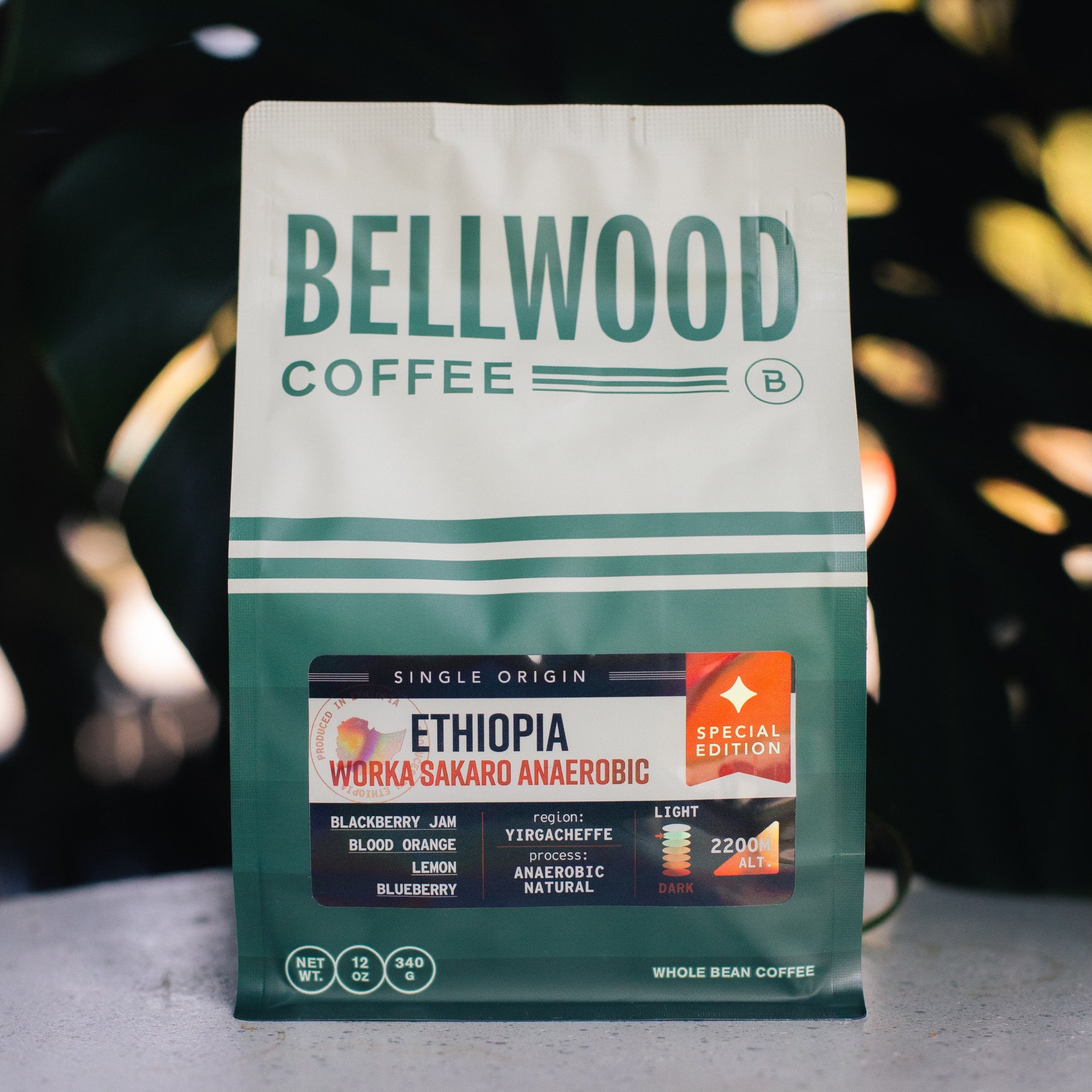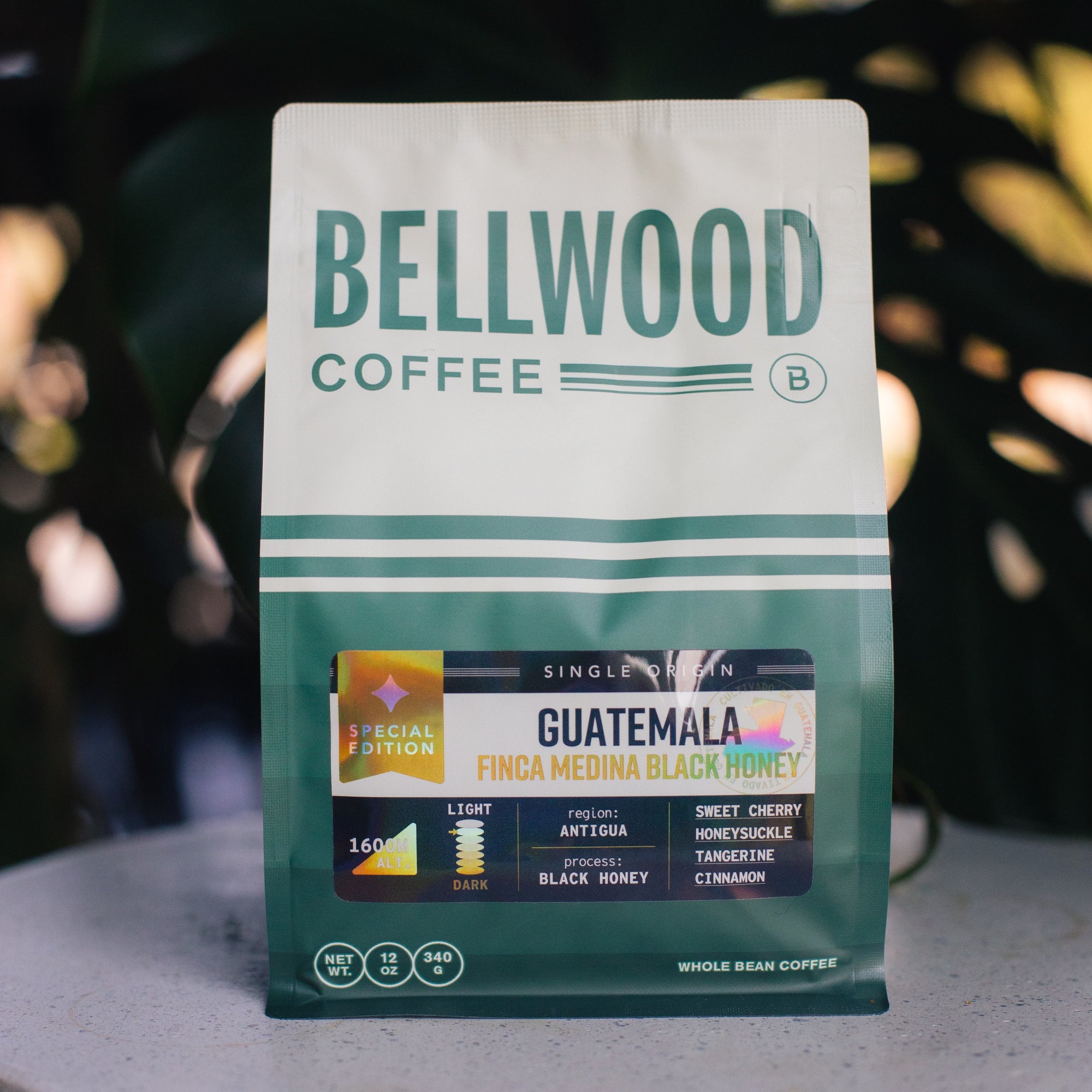Coffee Freshness - How Does Age Really Affect Coffee Flavor?
Coffee freshness is an extremely important factor in the flavor of your coffee. You probably know this, and it may be one of the reasons you buy coffee from a small local roaster instead of from the grocery store or a big chain. It's also why most coffee enthusiasts will tell you it's better to grind coffee at home instead of buying ground coffee. However, this sentiment can sometimes be taken to an extreme that is actually taking a step backwards in coffee flavor. Let's dive in.
What Happens After Roasting
The chemical changes that occur in roasting produce CO₂ (as well as other compounds) that get's trapped inside the beans cellular structure. Immediately after roasting, the coffee begins "degassing" where it releases the stored CO₂ into the air around it. This is why you'll see the little valves on coffee bags—they are there to allow that gas out of the bag without letting air into the bag. They're not just there so you can squeeze and sniff before you buy. Most of the gas is released within the first few days, but the coffee will continue to release the remaining gas for weeks.
Degassing and Flavor
If you drink coffee within the first few days of roasting, you may taste some unpleasant flavors that you wouldn't taste if you waited a few more days. This is due to the excessive amount of CO₂ interfering with the extraction process. After the first few days of degassing, the coffee begins to stabilize and the flavors start to fully develop.
When Should You Brew It?
The optimal brewing window will vary depending on the brewing method, roast level, and even the specific coffee. For general guidelines, this is what we recommend:
- Espresso: Usually requires 5–10 days of degassing post-roast to achieve stable pressure and flavor balance. We prefer 7+ days minimum.
- Filter Coffee: Often ready to brew after 2–5 days, as it is less sensitive to CO₂ levels than espresso.
- Dark Roasts: Tend to degas faster due to their more porous structure.
- Light Roasts: Degas more slowly, often requiring more time to reach optimal brewing.
This is understood side of coffee aging. There are also some things that we taste and don't understand. For example, sometimes we taste a coffee that is 3-4 weeks post-roast, and it tastes even more complex and vibrant than it did after 1 week. This seems to be something the coffee industry as a whole is still figuring out. It's also not the case with all coffees, and requires proper storage to ensure the coffee does not become stale while the flavors develop. What we've learned is that, when properly stored, every coffee and roast level has a different sweet spot in terms of when it tastes best.
Other Critical Factors
- Storage: If your coffee comes in a resealable bag with a valve (something like ours), storing the coffee in that bag is typically your best bet in terms of preserving flavor while still allowing the coffee to continue to degass. The only superior option is a vacuum sealed canister with a one-way valve. We stock the Fellow Atmos Canister here.
- Whole Bean vs Ground: Ground coffee will become stale (and degass) much faster than whole bean coffee. So, if you pre-grind your coffee, your optimal flavor window will be on the shorter side.
What About Freezing Coffee?
When we first got into coffee, most people in the industry that we encountered thought of freezing coffee as a big no-no. However, one quick test proved that not to be entirely true. Freezing coffee can be a great long-term storage solution, as long as it's done properly. This requires storing the coffee in vacuum sealed bags or containers to prevent any moisture from affecting the coffee due to condensation. If the coffee stays dry and air-tight, it will stay fresh much longer in the freezer than on the counter. Here's some tips on when to and when not to freeze coffee:
- Drinking it within a month? Probably best not to freeze it.
- Have way too much coffee on hand or going on a long trip? Vacuum sealing and freezing it is a great option to preserve the flavor and extend the shelf life by months.
How Old Is Too Old?
When considering flavor, we typically recommend drinking coffee within the first 1-2 months after roast, with it generally tasting considerably more vibrant and flavorful in the 1-4 week mark. If you don't have optimal storage habits, it will often taste significantly better between 1-2 weeks.
Share:
Try our range of coffees







